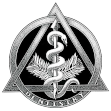We all need saliva to moisten and cleanse our mouths and digest food. Saliva also prevents infection by controlling bacteria and fungi in the mouth. When we don’t produce enough saliva, our mouth gets dry and uncomfortable. Reduce saliva flow that results in a dry mouth is a common problem among older adults. It is caused by certain medical disorders and is often a side effect of medications such as antihistamines, decongestants, pain killers and diuretics. Some of the common problems associated with dry mouth include a constant sore throat, burning sensation, problems speaking, difficulty swallowing, hoarseness or dry nasal passages. Left untreated, dry mouth can damage your teeth. Without adequate saliva to lubricate your mouth, wash away food, and neutralize the acids produced by plaque, extensive decay can occur. Sugar-free candy or gum stimulates saliva flow, and moisture can be replaced by using artificial saliva and oral rinses.
Dry mouth is a potential side effect of numerous medications (prescribed and over-the-counter), diseases and medical procedures. Among them are antihistamines, decongestants, painkillers, high blood pressure medications, muscle relaxants, drugs for urinary incontinence, medications for Parkinson’s disease, antidepressants and many others. Drying irritates the soft tissues in the mouth, which can make them inflamed and more susceptible to infection. Damage to the salivary glands, the glands that produce saliva, for example, from radiation to the head and neck and chemotherapy treatments for cancer, can reduce the amount of saliva produced. Conditions that lead to dehydration, such as fever, excessive sweating, vomiting, diarrhea, blood loss and burns can also cause dry mouth.
Common symptoms of dry mouth include:
- A sticky, dry feeling in the mouth
- Frequent thirst
- Sores in the mouth; sores or split skin at the corners of the mouth; cracked lips
- A dry feeling in the throat
- A burning or tingling sensation in the mouth and especially on the tongue
- A dry, red, raw tongue
- Problems speaking or difficulty tasting, chewing, and swallowing
- Hoarseness, dry nasal passages, sore throat
- Bad breath
Without the cleansing effects of saliva, tooth decay and other oral health problems become more common. Patients using oral inhalers for asthma often develop oral candidiasis, an oral fungal infection, and are encouraged to rinse their mouths with water after using the inhaler. Besides causing the aggravating symptoms mentioned above, dry mouth also increases a person’s risk of gingivitis (gum disease) and tooth decay.
If you think your dry mouth is caused by certain medication you are taking, talk to your doctor. He or she may adjust the dose you are taking or switch you to a different drug that doesn’t cause dry mouth. In addition, an oral rinse to restore mouth moisture may be prescribed. If that doesn’t help a medication that stimulates saliva production, called Salagen, may be prescribed.
Other steps you can take that may help improve saliva flow include:
- Sucking on sugar-free candy or chewing sugar-free gum
- Drinking plenty of water to help keep your mouth moist
- Protecting your teeth by brushing with a fluoride toothpaste, using a fluoride rinse, and visiting your dentist regularly
- Breathing through your nose, not your mouth, as much as possible
- Using a room vaporizer to add moisture to the bedroom air
- Using an over-the-counter artificial saliva substitute




